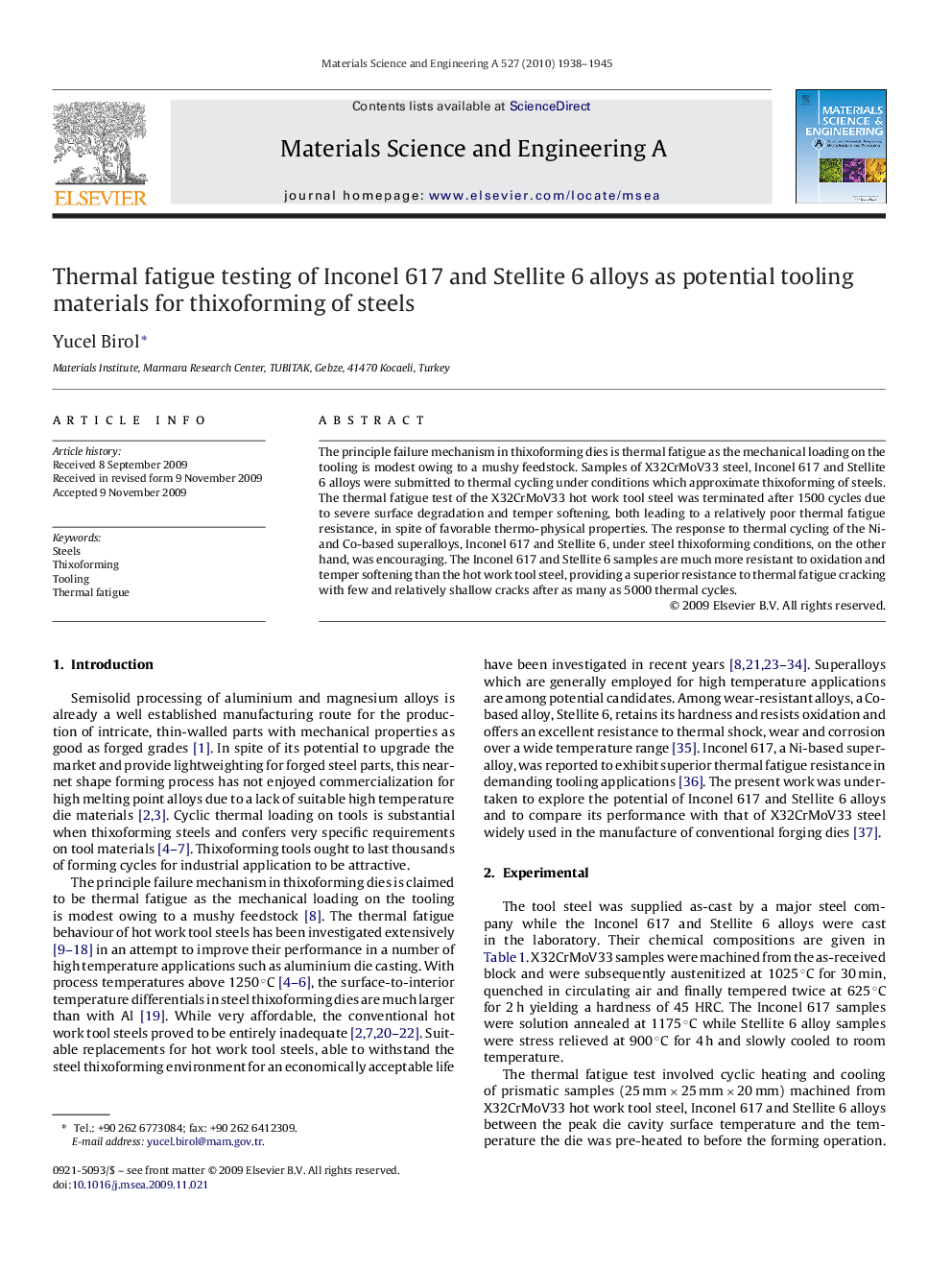| Article ID | Journal | Published Year | Pages | File Type |
|---|---|---|---|---|
| 1580589 | Materials Science and Engineering: A | 2010 | 8 Pages |
Abstract
The principle failure mechanism in thixoforming dies is thermal fatigue as the mechanical loading on the tooling is modest owing to a mushy feedstock. Samples of X32CrMoV33 steel, Inconel 617 and Stellite 6 alloys were submitted to thermal cycling under conditions which approximate thixoforming of steels. The thermal fatigue test of the X32CrMoV33 hot work tool steel was terminated after 1500 cycles due to severe surface degradation and temper softening, both leading to a relatively poor thermal fatigue resistance, in spite of favorable thermo-physical properties. The response to thermal cycling of the Ni- and Co-based superalloys, Inconel 617 and Stellite 6, under steel thixoforming conditions, on the other hand, was encouraging. The Inconel 617 and Stellite 6 samples are much more resistant to oxidation and temper softening than the hot work tool steel, providing a superior resistance to thermal fatigue cracking with few and relatively shallow cracks after as many as 5000 thermal cycles.
Related Topics
Physical Sciences and Engineering
Materials Science
Materials Science (General)
Authors
Yucel Birol,
